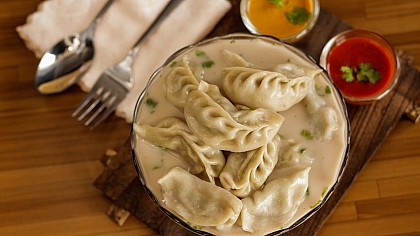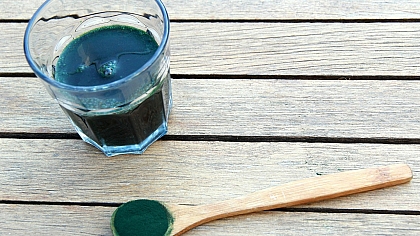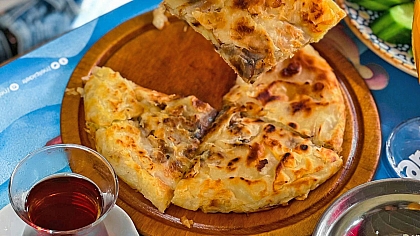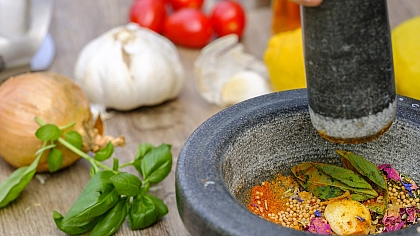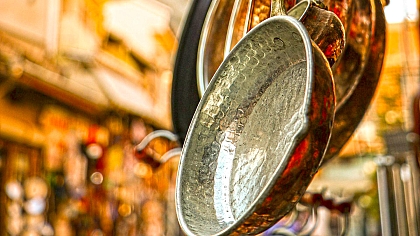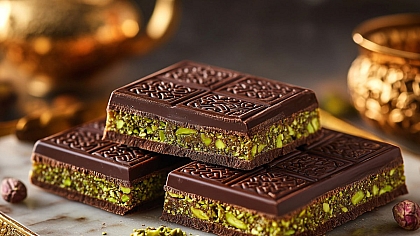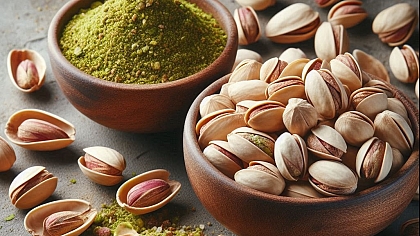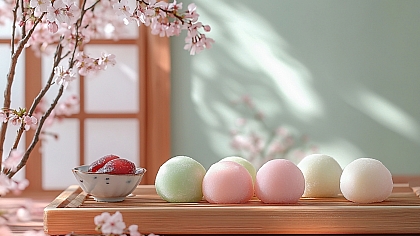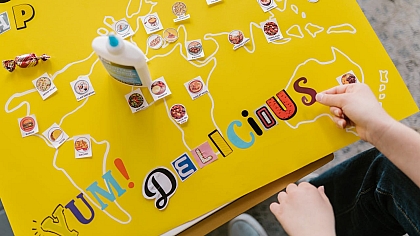
Turkish Tea: A Traditional Wonder of Turkey
“Where there’s tea there’s hope”
-Arthur Wing Pinero
If you visit Turkey or any other Turkish community around the world for that matter, it can’t be helped to notice groups of happy people sitting in café drinking a wonderful-looking, transparent brown hot drink from small fancy glasses. This is known as Turkish tea.
What is Turkish Tea?
Turkish tea, known as çay, is drunk after meals and is sweetened with lumps of sugar or beet sugar crystals due to balance its strong flavour, and unlike regular tea, it is drunk without milk. The particular type of tea used is called Rize tea or Rize çayı as it is produced in the Rize province in Turkey. Traditionally Turkish tea is served in a narrow-waisted glass on a saucer, sometimes matching the design of the glass.
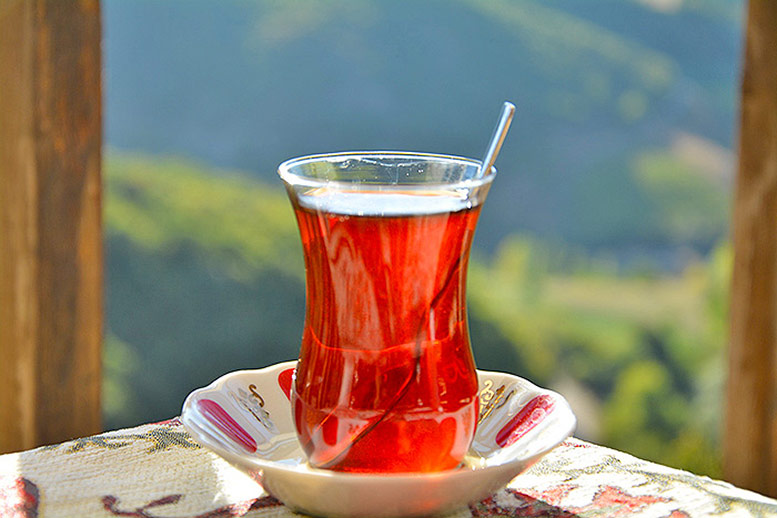
The two separate kettles that are used to make Turkish tea are called çaydanlık. The smaller kettle contains loose tea and some water, as the tea in this kettle is very strong, the larger kettle contains water which is used to dilute the tea to the consumers liking.
The customer has a choice of the tea being koyu meaning dark, or açık meaning light; this doesn't mean with or without milk but rather the strength of the tea, with dark being a lot stronger than light.
Turkish Tea – Not Just a Drink
Offering Turkish tea to guests is a tradition in Turkey and is an essential part of showing hospitality.
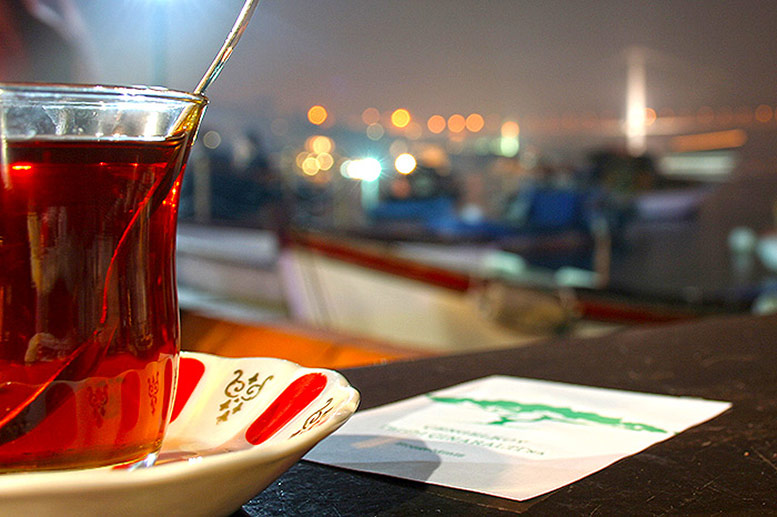
The social aspect of drinking tea isn’t just confined to Turkey and various countries in the Balkans have the same tradition of transforming drinking tea into a social event. Arab countries, especially in North Africa, have a very similar tradition but with coffee instead.
Every village in Turkey has a teahouse which is as important to the people as the market; in the teahouses, you will find groups of men (it is a tradition predominantly practised by males) sitting around tables drinking tea, chatting and playing board games or cards.
This is an important aspect of life in many countries, people make friends, talk about politics and have a good time in general.
Some people think that the birth of social tea/coffee drinking came with the spread of Islamic civilisation; in Islam, alcoholic drinks are prohibited so the majority of Muslim men do not go to the pub to drink and socialise. Teahouses are a way for the community to socialise without transgressing their religious bounds.
The History of Turkish Tea
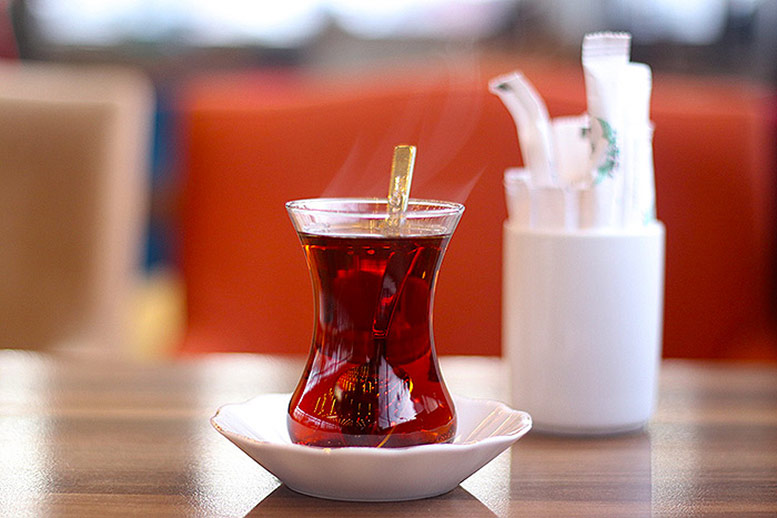
Historically, in the Ottoman Empire, the Turkish people were a nation of coffee drinkers, much like the Arab countries which observe this tradition of social coffee drinking. Frequenting the coffeehouses was a common part of daily life for men and drinking coffee was a social event that brought the community together.
During the Ottoman Empire, Sultan Abdülhamid II (reigned 1876-1909) began planting tea in the country and was trying to reform the nation as previous historical events and large debts had left the Ottomans economically behind the rest of the world. Tea was cheaper and perhaps he thought that switching to tea would help the empire economically, his efforts were abandoned after he was deposed following the Young Turk Revolution in 1908. It was only until after the First World War that tea became popular in Turkey.
The economic crisis that resulted in Turkey after World War I and the fall of the Ottomans led to the prices of Turkish coffee becoming very expensive. People could not afford coffee but didn’t want to ruin the traditions that had been a part of their lives for as long as they could remember, the Turkish people adapted and started drinking tea instead which was cheaper.
Turkey is now the world’s sixth-largest producer of tea and per person, Turkish people drink the most tea out of any other nation in the world (although as a whole, China consumes the most tea but that is due to their massive population).
Different types of Turkish Tea
Many different delicious varieties of tea are drunk in Turkey, here are some of them that can be found readily available in the spice bazaars and can be purchased by weight or in prepacked boxes:
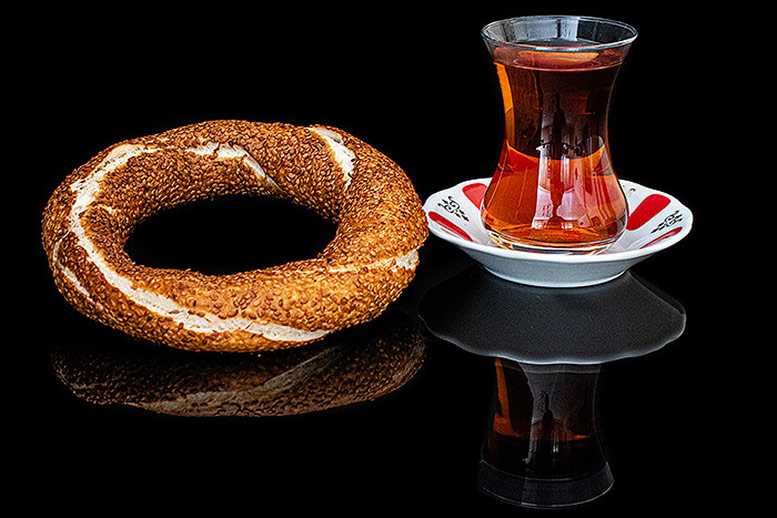
Rize tea (Rize çayı) – Grown in the province of Rize, this is the famous Turkish tea.
A note on herbal tea: In Turkey, herbal tea, which is used as herbal medication is normally drunk by tourists, most Turkish people drink Rize tea.
Oralet tea – A fruit tea commonly drunk by tourists, oralet tea is a powdered tea and available in various flavours including orange, apple, lemon, and cherry.
Pomegranate tea (nar çayı) – Pomegranates grow in abundance in Turkey, and tea made with dried and crushed pomegranate is one of the best teas you can try. Not only does pomegranate tea have an amazing flavour and a beautiful red, natural colour, but it also is full of antioxidants and offers many health benefits for the heart, weight loss, and inflammation and is even known to help prevent chronic diseases.
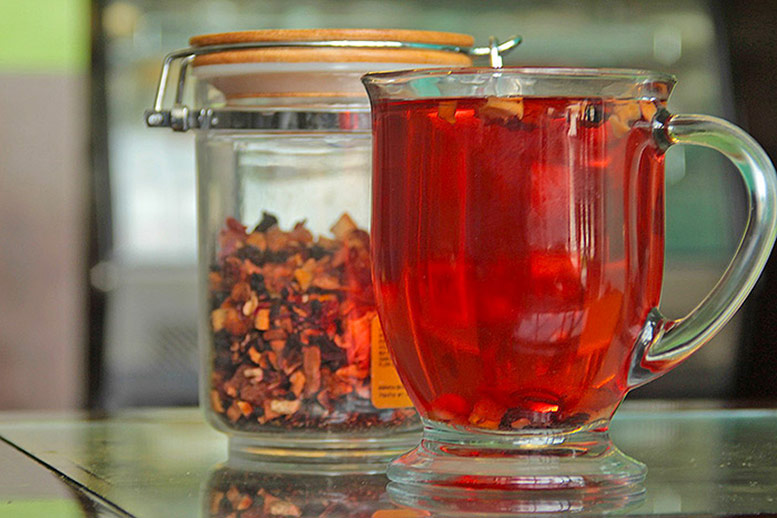
Apple tea (elma çayı) – A black, sweet tea, apple tea is commonly drunk by travellers. It helps maintain vision and boosts the immune system.
Rosehip tea (kuşburnu çayı) – Made from the fruit of the rose plant, rosehip tea tastes and smells wonderful, it is good for preventing cardiovascular diseases and even cancer. Just as elegant as the flower itself, rosehip tea is the most attractive looking (and smelling) out of the Turkish herbal teas.
Linden flower tea (ıhlamur çayı) – Linden flower tea relaxes the body and helps you to sleep. It is also known to lower blood pressure and reduce inflammation. It can even reduce mild pain and help soothe the digestive tract.
Sage tea (ada çayı) – Sage tea can help protect the heart against various issues and it is also known to soothe the symptoms of menopause. It is also good for soothing a sore throat.
Thyme tea (kekik çayı) – Helps soothe the throat and has many other health benefits, thyme tea is perfect for when you are feeling ill.
Lemon and mint tea (nane limon çayı) – With an irresistible, refreshing taste, lemon and mint tea helps detox the body and boosts the immune system. It is known to help stomach ailments such as vomiting and nausea.
Fennel tea (rezene çayı) – Although fennel seeds are rarely used in Turkish cuisine, they are used in fennel tea for their extraordinary health benefits. Fennel tea helps relax the muscles, settle the stomach and help produce breast milk for nursing mothers. The antioxidants in fennel tea reduce the formation of blood clots and it is also good for people with diabetes.

